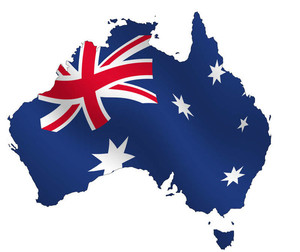In recent years, biosimilar medicines have gained increased support and access in Australia through the Pharmaceutical Benefits Scheme (PBS), a government programme designed to subsidize essential medicines and make them affordable for all Australians. Biosimilars are versions of original biological medicines that are highly similar in terms of quality, safety, and efficacy but are generally more affordable.
The inclusion of biosimilars on the PBS is a cost-saving measure aimed at reducing healthcare expenses while maintaining high standards of patient care. By offering these cost-effective alternatives, the PBS allows patients with chronic conditions, such as rheumatoid arthritis, cancer, and diabetes, to access effective treatments at a lower price. Given that biological drugs often come with high price tags, biosimilars offer a financially sustainable solution, fostering greater patient access to essential treatments and ensuring the long-term viability of the healthcare system.
On 1 October 2024, Australia’s Department of Health and Aged Care released an updated list of biosimilar medicines subsidised on the PBS, see Table 1.
| Table 1: Biosimilars on Australia’s Pharmaceutical Benefits Scheme*
|
| Active ingredient
|
Biosimilar brand (Sponsor)
|
Date of PBS listing for biosimilar brands
|
| Adalimumab
|
Amgevita (Amgen) ‘a’ flagged
|
01/04/2021
|
| Abrilada (Pfizer) ‘a’ flagged
|
01/08/2024
|
| Adalicip (Cipla) ‘a’ flagged
|
01/01/2024
|
| Hadlima (Arrow Pharma) ‘a’ flagged
|
01/04/2021
|
| Hyrimoz (Sandoz) ‘a’ flagged
|
01/04/2021
|
| Yuflyma (Celltrion) ‘a’ flagged
|
01/03/2023
|
| Bevacizumab†
|
Abevmy (Alphapharm)
|
01/12/2022
|
| Bevaciptin (Cipla)
|
01/11/2022
|
| Mvasi (Amgen)
|
01/06/2021
|
| Vegzelma (Celltrion)
|
01/10/2024
|
| Enoxaparin sodium
|
Exarane / Exarane Forte (Juno) 'a' flagged
|
01/11/2023
|
| Epoetin lambda
|
Novicrit (Sandoz)
|
01/08/2010 (pre-dated current PBAC approach to advice on 'a' flagging)
|
| Etanercept
|
Brenzys (Merck Sharp and Dohme) 'a' flagged
|
01/04/2017
|
| Filgrastim
|
Nivestim (Pfizer) 'a' flagged
|
01/04/2011
|
| Zarzio (Sandoz) 'a' flagged
|
01/09/2013
|
| Follitropin alfa
|
Bemfola (Gedeon Richter)
|
01/08/2016
|
| Ovaleap (Theramex) 'a' flagged
|
01/12/2021
|
| Infliximab
|
Inflectra (Pfizer) 'a' flagged
|
01/12/2015
|
| Renflexis (Merck Sharp and Dohme) 'a' flagged
|
01/08/2017
|
| Pegfilgrastim
|
Pelgraz (Accord) ‘a’ flagged
|
01/08/2020
|
| Ziextenzo (Sandoz) ‘a’ flagged
|
01/03/2020
|
| Rituximab†
|
Riximyo (Sandoz) 'a' flagged (s100)
|
01/10/2019
|
| Ruxience (Pfizer) ‘a’ flagged (s100)
|
01/06/2022
|
| Truxima (Celltrion) 'a' flagged (s100)
|
01/01/2020
|
| Teriparatide
|
Teriparatide Lupin (Generic Health)
|
01/05/2024
|
| Terrosa (Gedeon Richter)
|
01/10/2021
|
| Trastuzumab†
|
Herzuma (Celltrion)
|
01/11/2019
|
| Kanjinti (Amgen)
|
01/12/2019
|
| Ogivri (Alphapharm)
|
01/08/2019
|
| Trazimera (Pfizer)
|
01/05/2020
|
*Date corrected as 1 October 2024.
† The independent expert Pharmaceutical Benefits Advisory Committee (PBAC) recommended brands as substitutable biosimilars of the reference brands for the purposes of the Efficient Funding of Chemotherapy Program. Under section 33(2) of the National Health (Efficient Funding of Chemotherapy) Special Arrangement 2011, chemotherapy medicines supplied under the Efficient Funding of Chemotherapy Program may be substituted with a different brand of the same chemotherapy medicine. These medicines are not marked with ‘a’-flags in the Schedule of Pharmaceutical Benefits.
|
Altogether, 12 active ingredients of biosimilars are represented across 30 brands on the PBS. This includes all approved biosimilars for adalimumab (6), filgrastim (2), infliximab (2), pegfilgrastim (2), rituximab (3), each marked as ‘a’ flagged, as well as enoxaparin sodium, etanercept, and follitropin alfa biosimilars, also marked as ‘a’ flagged. In total, 18 biosimilars have been ‘a’ flagged, signifying they are offered at reduced prices compared to their originator biological. Notably, a statutory price reduction of up to 25% applies to all brands of a medicine after its first generic or biosimilar version is PBS listed [1].
The Australian government has collaborated closely with healthcare providers, including doctors and pharmacists, to encourage the adoption of biosimilars. Consequently, the PBS continues to expand its listing of these medicines, promoting wider use across the healthcare sector.
Related articles
Australia and EU: Alvotech Humira and Stada Lucentis biosimilars approved
Australia introduces new bill to address drug shortages
Reference
1. GaBI Online - Generics and Biosimilars Initiative. Biosimilars in Australia – a-flagging and sustainability [www.gabionline.net]. Mol, Belgium: Pro Pharma Communications International; [cited 2024 Nov 20]. Available from: www.gabionline.net/biosimilars/general/Biosimilars-in-Australia-a-flagging-and-sustainability
Permission granted to reproduce for personal and non-commercial use only. All other reproduction, copy or reprinting of all or part of any ‘Content’ found on this website is strictly prohibited without the prior consent of the publisher. Contact the publisher to obtain permission before redistributing.
Copyright – Unless otherwise stated all contents of this website are © 2024 Pro Pharma Communications International. All Rights Reserved.








 0
0











Post your comment